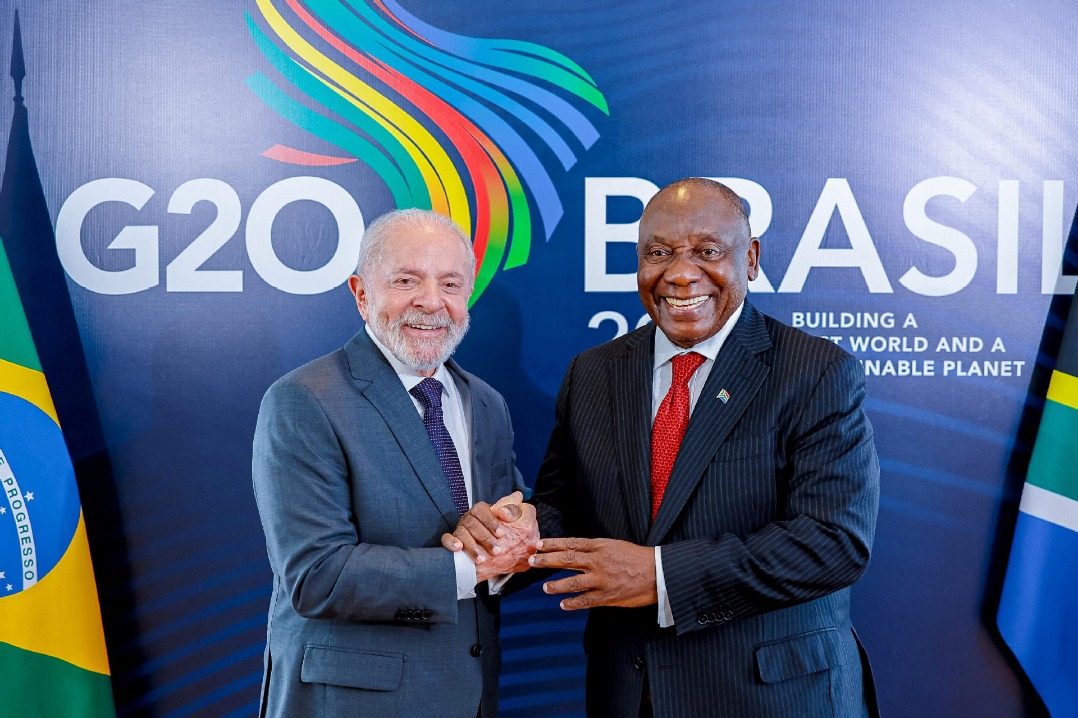US actor's death a call to end drug abuse


Actor Matthew Perry's untimely death at age 54 evoked a rare outpouring of emotions from the millions of fans who not only followed his idiosyncratic, sarcastic character, Chandler Bing, for the ten seasons that Friends aired on NBC, but also Perry's well publicized battles with alcohol and drug addiction and his passionate advocacy for ending the scourge of substance abuse.
So, instead of merely mourning his passing, we should use Perry's life as a lesson to get the United States' and the global community's act together to redouble our efforts to end substance abuse.
When I was posted to the United Nations International Narcotics Control Board in Vienna, Austria, in 1981, I could see the US' so-called war on drugs was not being won. Today, more than four decades later, the country has fallen further behind the battle.
Perry's life is ample proof of the US' failure. His substance abuse started at age 14 with beer and wine. He then progressed to more potent alcoholic drinks. He "graduated" to opioid abuse and became addicted to painkillers such as OxyContin. He spent half his life in rehabilitation, attended more than 6,000 Alcoholics Anonymous meetings, and spent more than $9 million trying to tame his addiction. But the abuse of legal drugs, legally or illegally obtained, pales in comparison to illegally produced drugs.
Fentanyl, a synthetic opiate created in laboratories, began as a powerful legal painkiller. The demand for legal fentanyl in the US could not be met. So illicit fentanyl began appearing. According to the US National Center for Drug Abuse Statistics, there were 42,700 fentanyl overdose death in 2020.
The US accuses China of facilitating fentanyl abuse. But the fact is, the US, cannot get its house in order, as Perry's case shows, even with drugs that are legally manufactured. Why? You don't have to be a drug expert to know the reason. Being an economist is sufficient. To put it simply, it's a matter of supply and demand. The US demand for drugs has kept increasing, with supply, too, increasing to meet the demand.
Short of making some or the most illegal drugs legal, albeit under controlled conditions — an idea that is fiercely debated — to end the abuse of both legal and illegal drugs, both the supply side and demand sides must be simultaneously addressed.
China, however, has cooperated with the US to, for example, reduce fentanyl abuse by banning the production and export of fentanyl and its analogues. And in 2019, China announced that it would add all fentanyl-related substances to its list of controlled drugs, making them illegal to manufacture, sell in the domestic market or export to other countries.
China and the US had been sharing intelligence and even conducting joint operations, but former US president Donald Trump's continued attacks against China has greatly undermined that cooperation. US Secretary of State Antony Blinken during his visit to China in June sought to revive the high-level cooperation, specifically to end fentanyl abuse. Both sides agreed to establish task forces to this effect, but this is still work in progress.
Of late, perhaps because both China and the US recognized that bilateral relations had hit rock bottom, there has been renewed engagement in this area in the past few months.
Both countries, indeed all countries, are facing common existential threats, and efforts to address them cannot be further deferred. Drug abuse is only one of the threats faced by the world, and not the most pressing. The ravages of climate change are increasing and worsening by the day, and only a Luddite would deny its devastating impacts on global society, especially on the environment.
According to scientists, a pandemic like COVID-19, perhaps more lethal, is no longer a question of if but when. The unleashing of "generative artificial intelligence" is also a cause for concern if not addressed now given that computers have been showing primitive signs that of starting to think for themselves.
So let's grieve for Matthew Perry and the demons he faced, but let us always keep in mind that we face demons, too, just as self-created as Perry's were. The US should deepen cooperation with China to overcome the threats of drug abuse, climate change, AI and a host of issues, because they are the world's two leading countries. Without resuming their active cooperation, they cannot resolve any issues
The author is a senior fellow at the Center for China and Globalization.
The views don't necessarily reflect those of China Daily.
If you have a specific expertise, or would like to share your thought about our stories, then send us your writings at opinion@chinadaily.com.cn or comment@chinadaily.com.cn.


































